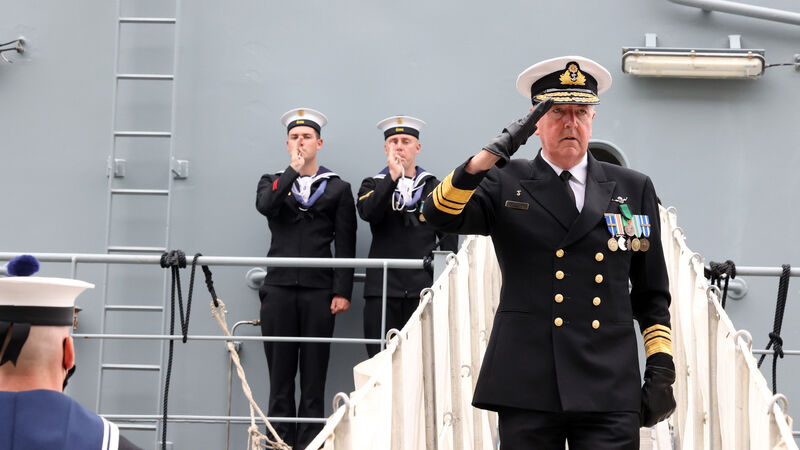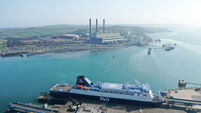Former Defence Forces chief urges Ireland to hire repair ship to protect subsea cables

Vice Admiral Mark Mellett, DSM disembarking the L.É. Samuel Beckett arriving at John Rogerson's Quay, Dublin. Picture: Sam Boal/RollingNews.ie
Ireland needs to contract a commercial repair vessel to restore damage to subsea data cables, along with an alert system to track suspicious vessels, the former head of the Defence Forces has said.
Mark Mellett said Ireland also needs a cross-department coordination unit to improve collaboration between the commercial sector, which owns the cables, and Irish security services.













